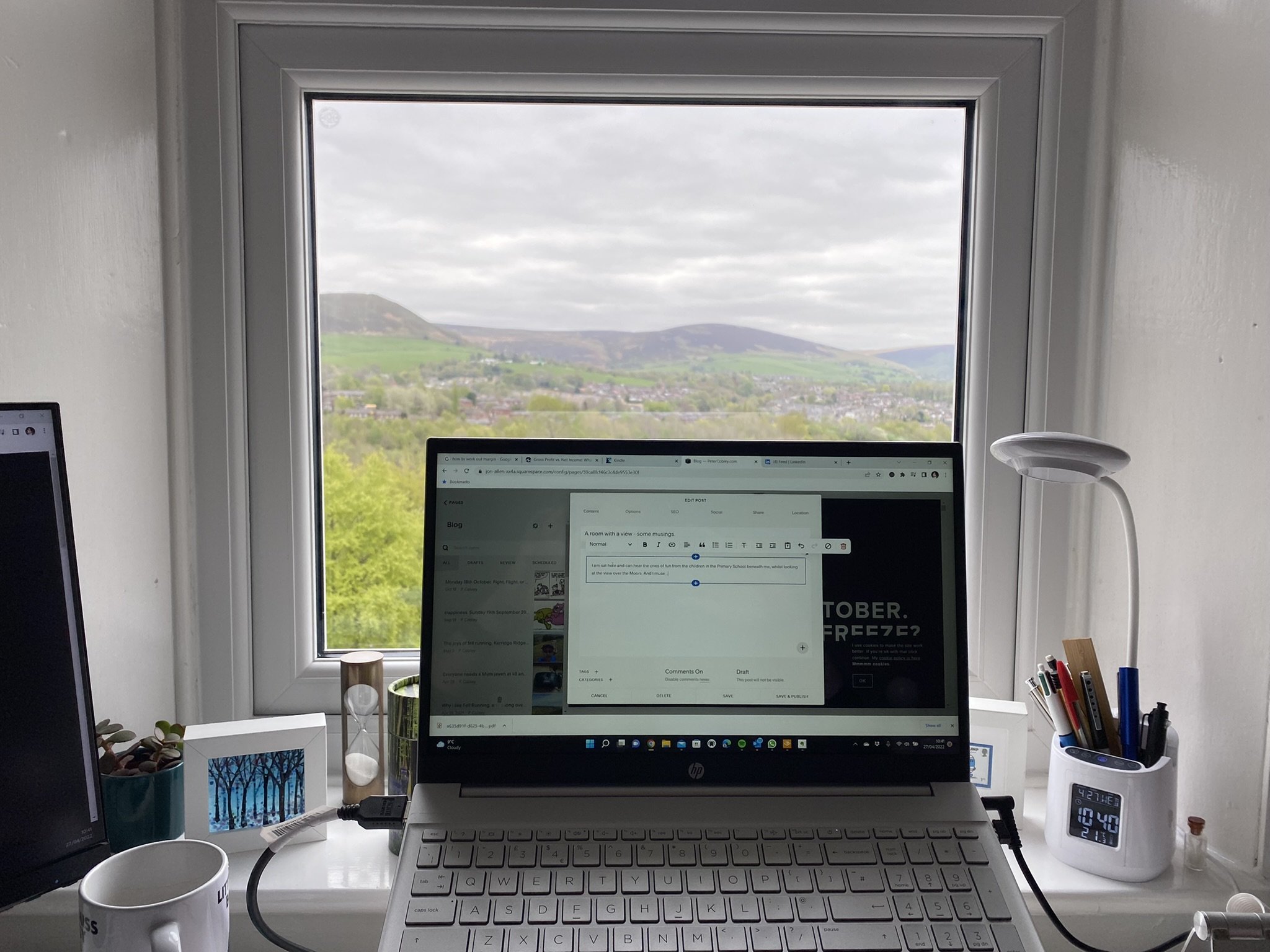Yesterday I sat here and heard the cries of fun from the children in the Primary School beneath me, whilst looking at the view over the Moors. And I mused…
Misson Control - Sort of…
Yesterday was a good day as I cycled to and from meetings, whilst also bobbing into Aldi in Stalybridge. A lovely day, and a nice way to see the world at your pace and not speeding by. Which makes me think. What is pace? Or what is the correct pace? Hmmm.
We often talk about getting the balance right in life, which is correct, but I got thinking as to pace. Are we living at the correct pace, and what do I mean by this?
I realise now that pace is important and by pace I mean at what speed are we living life? It has taken me years to realise that pace can be habitual, i.e. get up, breakfast, travel, work, lunch, chores, work, home, leisure/work, bed, etc. etc. etc. We rush into habitual behaviour, like driving a car over 30mph and miss the scenery. We have a myopic view and if slower or paced we would look out of all windows of the car and appreciate what we see, and in slowing down have time to think, observe, and let the mind flow through its stream of consciousness.
Daniel Oliver in 1840 in First Lines of Physiology: Designed for the Use of Students of Medicine, when he wrote
“If we separate from this mingled and moving stream of consciousness, our sensations and volitions, which are constantly giving it a new direction, and suffer it to pursue its own spontaneous course, it will appear, upon examination, that this, instead of being wholly fortuitous and uncertain, is determined by certain fixed laws of thought, which are collectively termed the association of ideas.”
You need to make time for your mind to flow at a slower pace (mental) and for you to set aside time for you to sit in your thoughts, or slow the pace down (physical). In doing so you allow for a stream of consciousness within your mind and via analogous conscious and unconscious reasoning make associations with thoughts, feelings, and emotions. It leads to solutions, emotional stability, and a calmness in the moment. The troubling past sweeps by, and the hypothetical future does not eat up time or cause anxiety.
Also have a read of the following, it is a wonderful book that explains how we humans are creatures of habit, and of their impact on how we live, but do not yet realise.
”Me” time, or time to yourself, to think, to meditate, to be, is what I allude to. And something I have had to learn. Sit in the moment. Doing so allows one to break a habit routine, and to examine what one does in the moment. Now back to habits.
In The Power of Habit, Pulitzer Prize-winning journalist Charles Duhigg researches and explores how habits grow into automatic behaviors that determine personal lives, businesses, and society. Unhealthy habits seem to difficult to break. He gives practical advice to help you understand, change, and develop good habits.
If you understand that you are existing to pre-ordained habits, you can break cycles that you operate in and free yourself to be happy, live in the moment, and achieve dreams. How hard do we find it to seemingly break out of where we are? Have you ever sat at the desk, head in hands, wondering about Groundhog Day, or is this all I have?
Today - Thursday 28th April - an approach
So it is roughly twenty past nine in the morning of Thursday 28th April, and I am finishing off this blog entry from yesterday whilst watching ending of The Power of the Dog which I watched a short while back but not finished.
Benedict Cumerbatch’s character Phil has died and it is the aftermath; atmospheric, severe, thoughtful. It engenders a stream of thought, of consciousness, as I sit here in the lounge, fire on, observing the film, where I am, letting my thoughts wander.
I think life is transient and ever changing, and do we really know what we or others think? All we have is the moment, and like the ending of the film, life is an enigma every second that we live in, as we are enigmas in our own thoughts. And like a babbling brook we should flow and happen. What will be will be, and we do not have to be slaves of habit.
Like the great space of Montana in the film where you can flee to, you can flee from the constraints of habit, or conditioned thinking as dictated by what you think you must think - influenced by upbringing, society. This allows for creativity and bucking the trend so to speak. Of reaching out and taking the moment.

